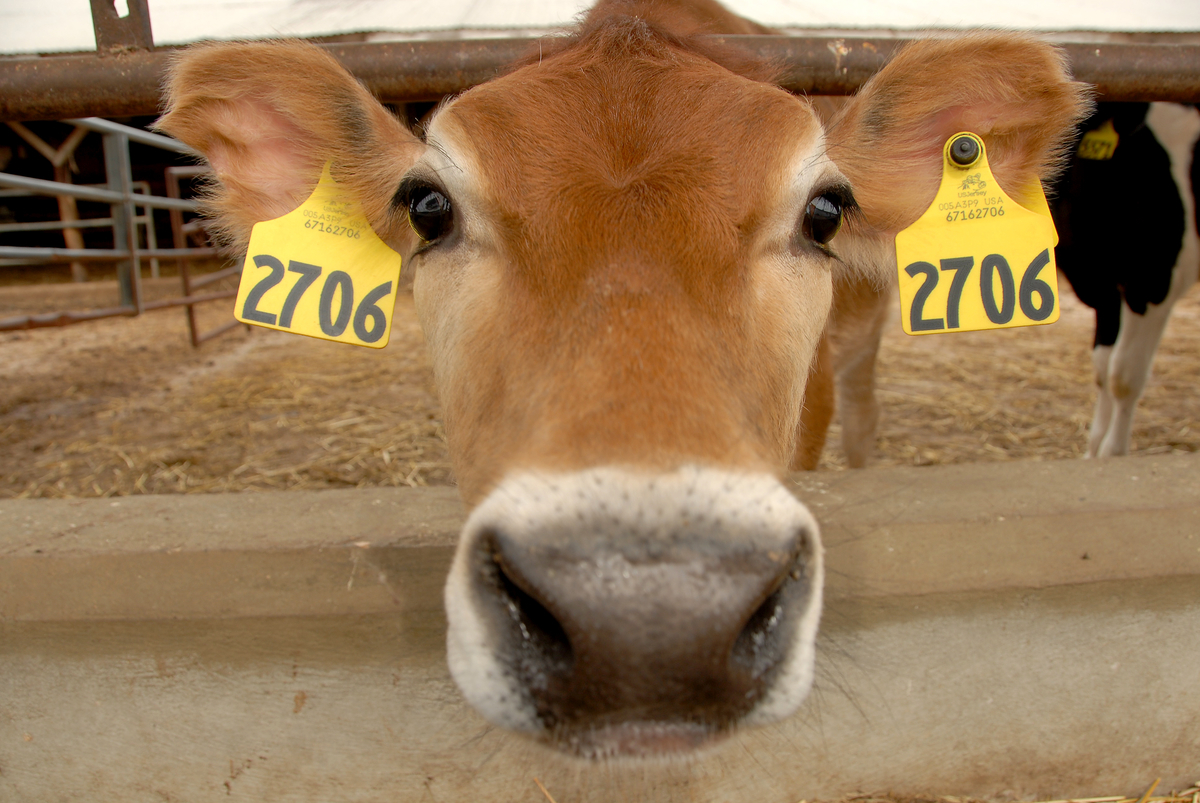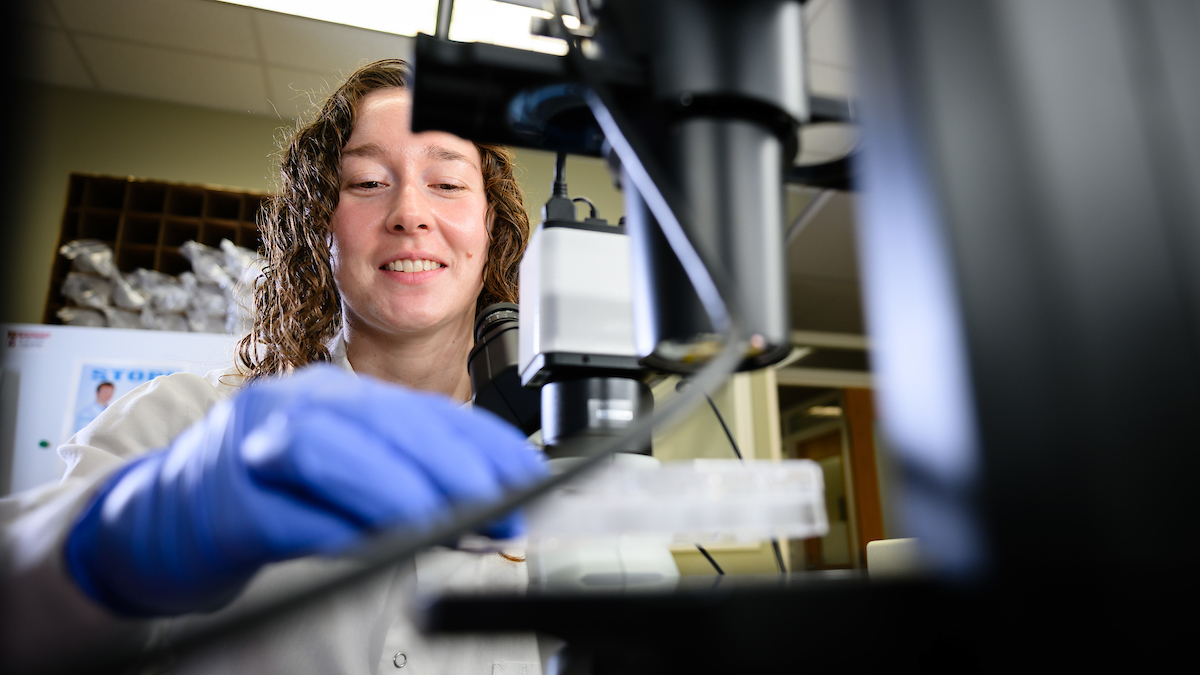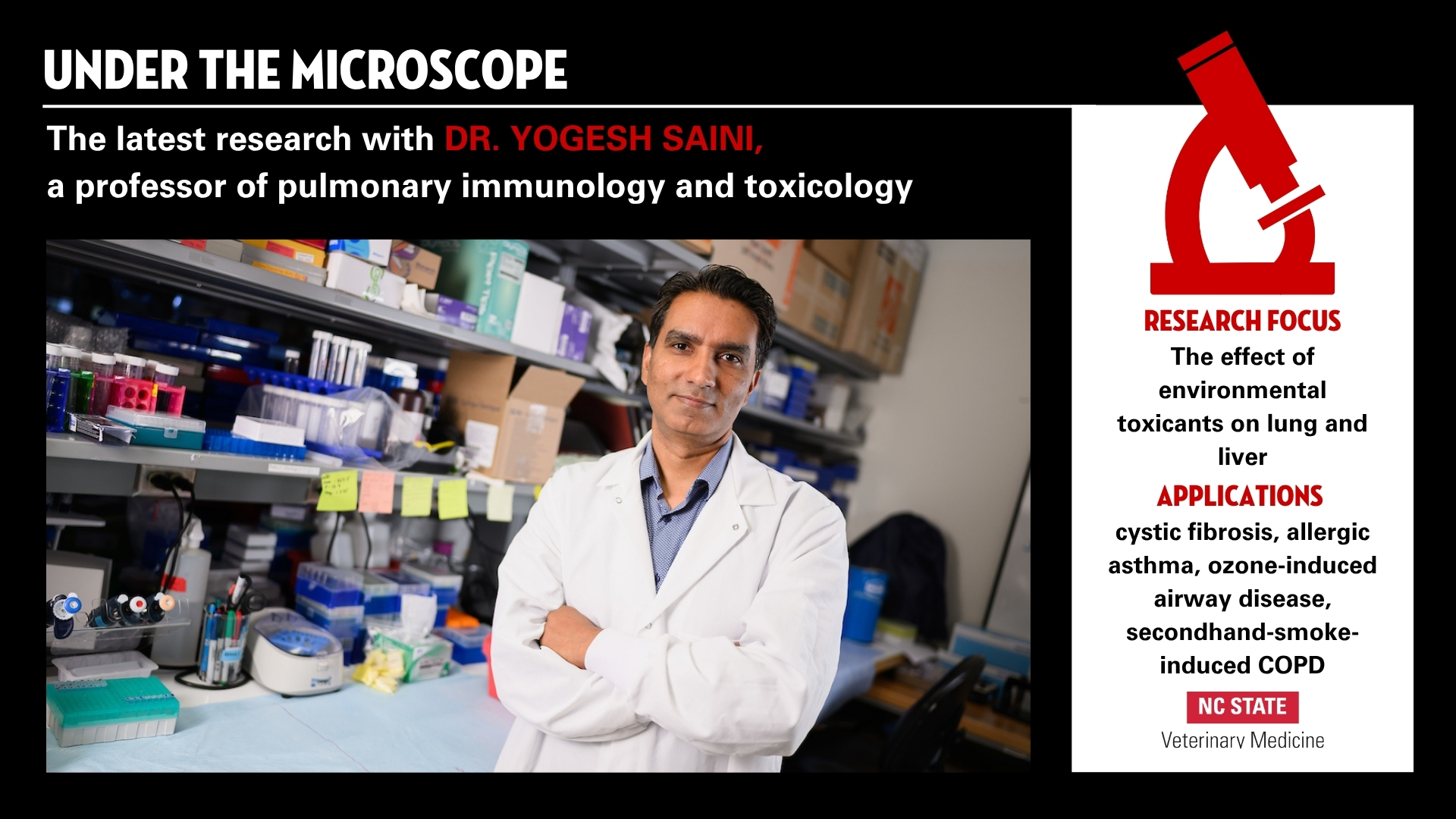CALS & CVM Partner on Animal Agriculture Research

The North Carolina State University College of Agriculture and Life Sciences and College of Veterinary Medicine are funding three competitive “strategic enrichment” grants that support collaborative research in animal agriculture.
The separate investigations into the production health of swine, cattle, and poultry will involve nine faculty members from the College of Veterinary Medicine (CVM) and four from the College of Agriculture and Life Sciences (CALS). This is the second year of the innovative CALS/CVM Strategic Enrichment Grant Program.
“Our ongoing partnership with CALS through the grant program offers a great opportunity to focus our joint expertise on enhancing the health of food animals within North Carolina, the U.S., and internationally as well as helping to ensure global food security,” says Paul Lunn, dean of the College of Veterinary Medicine.
The goal of one grant is to develop a system for selecting for genetic resistance to Porcine Reproductive Respiratory Syndrome virus (PRRSV) in reproductive sows. PRRSV is an endemic viral disease of swine that results in decreased reproductive performance and reduced growth affecting pork production worldwide. The economic impact of PRRSV on the U.S. swine industry alone is $664 million a year.
CVM investigators are Belinda Akpa, Jonathan Fogle, and Glen Almond. CALS investigators are Nick Serao and Mark Knauer.
A second grant funds the development of research-based recommendations for food animal veterinarians that would ensure the efficacy of antibiotics used in cattle while minimizing antimicrobial resistance. The National Action Plan for Combating Antibiotic-Resistant Bacteria calls for veterinarians to develop and implement strategies to reduce the spread if antimicrobial resistance bacteria since antibiotics will continue to be necessary to treat specific diseases. The research team seeks to develop antibiotic use guidelines and establish drug withdrawal time to mitigate antibiotic resistance and ensure food safety.
CVM investigators are Derek Foster, Mark Papich, Megan Jacob, Casey Theriot, and Cristina Lanzas.The CALS investigator is Sophia Kathariou.
Aiding Ethiopian poultry producers is the focus of the third grant. Ethiopia has made enhancing livestock production a priority to reduce poverty and ensure food security. Ethiopian farmers, however, have identified basic constraints to successful poultry production including diseases, lack of veterinary services, appropriate feed, shelter, poor practices, and predators. The CALS/CVM team, augmented by researchers from the Ethiopian Institute of Agriculture Research and the University of Liverpool, will review the constraints, develop an integrated extension program to address them, and then create a training package for ongoing support of extension service providers.
The CVM investigator is Andy Stringer. The CALS investigator is Kenneth Anderson. Additional co-investigators are Alemayehu Amare from Debre Zeit Agricultural Research Centre and Rob Christley from the University of Liverpool.
The total funding of $450,000 for the three CALS/CVM Strategic Enrichment Grants is evenly between the two colleges.
- Project title: A systems biology approach to assess host transcriptomics and virus kinetics in reproductive replacement gilts in the face of Porcine Reproductive and Respiratory Syndrome (PRRS)
- Project title: Reducing the impact of production constraints on semi-intensive poultry producers in Ethiopia
- Project title: Impact of Intestinal Antibiotic Concentration on the Microbiota and Antimicrobial Susceptibility of Foodborne Pathogens in Cattle


